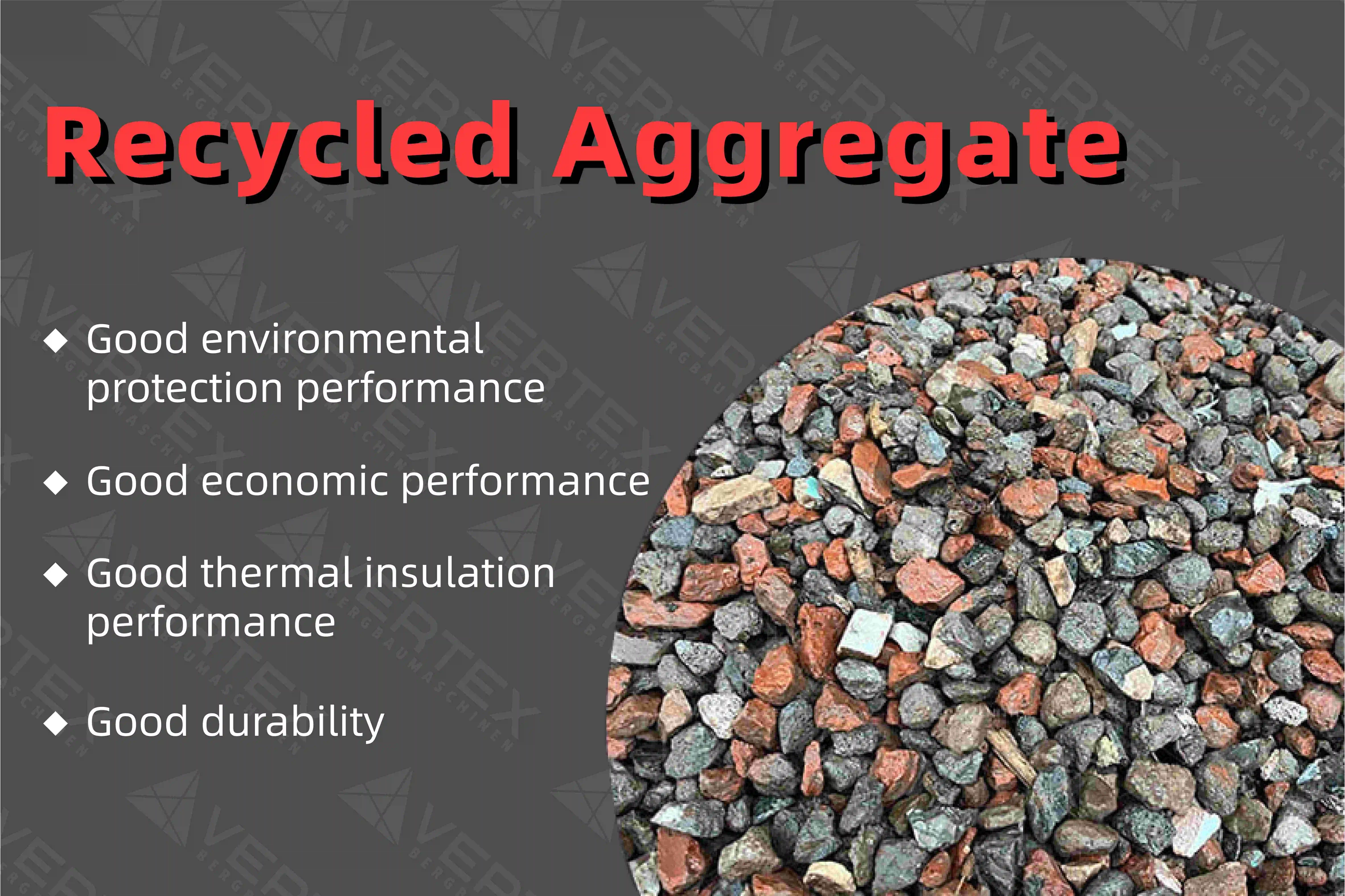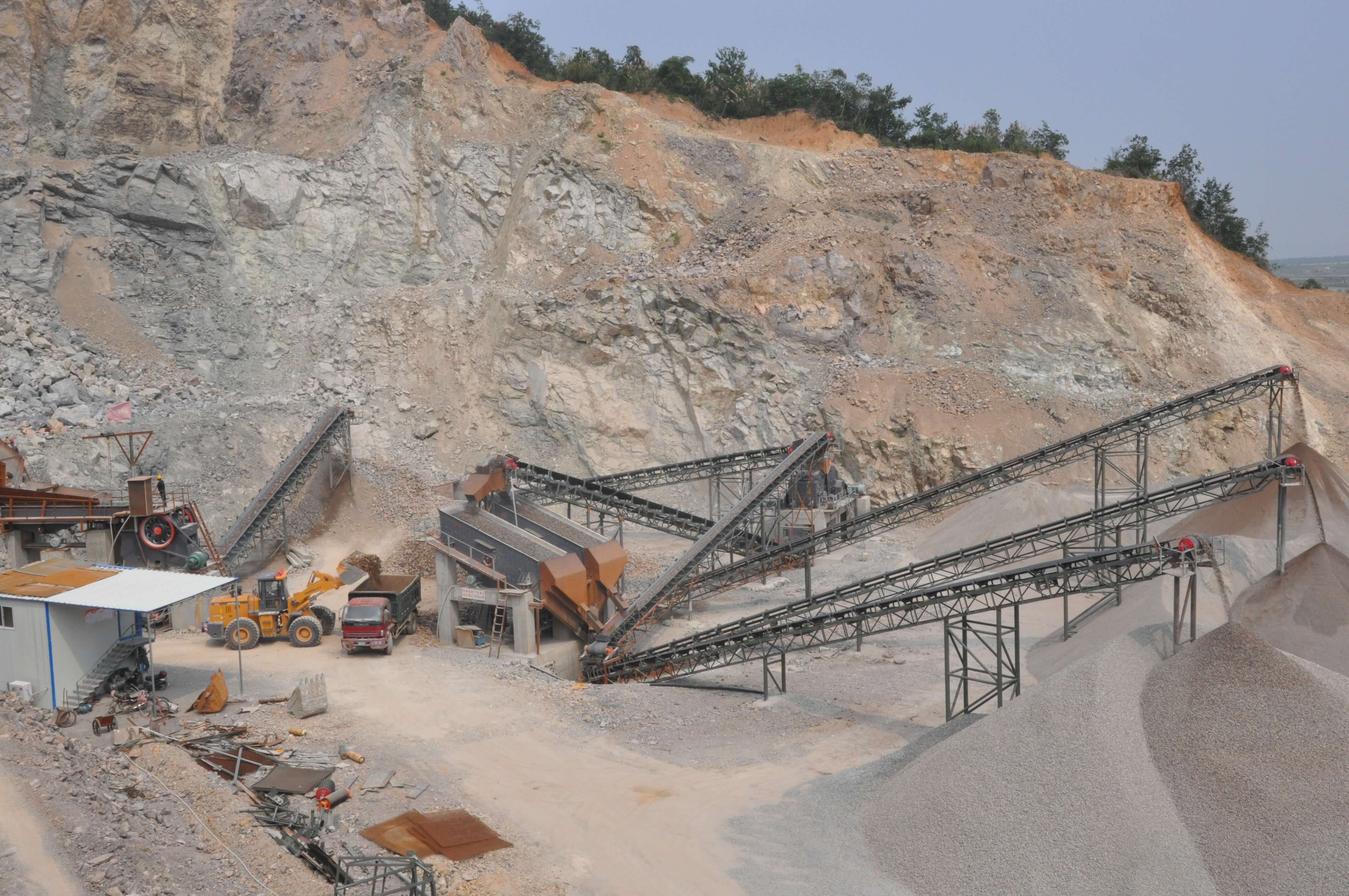
Recycled aggregate is an environmentally friendly alternative to traditional construction materials, primarily made from processing construction and demolition debris. With increasing concerns over sustainability and resource conservation, recycled aggregates are gaining popularity due to their reduced environmental impact, cost-effectiveness, and versatility in construction applications. This article will delve into the details of recycled aggregates, their production process, types, and the critical role of crushers such as mobile jaw crushers, mobile cone crushers, mobile impact crushers, and mobile screening plants in their efficient production.
Recycled aggregate refers to materials created by crushing and processing construction and demolition waste such as old concrete, asphalt, and masonry. These materials are then processed to produce aggregates suitable for various construction purposes. Mobile crushers, particularly mobile jaw crushers and mobile cone crushers, are used extensively in crushing large concrete and asphalt waste, reducing them into smaller, reusable aggregate sizes.
Recycled aggregate is mainly sourced from construction and demolition sites, where old concrete, asphalt, and other materials are discarded. These materials are then collected and transported to a processing site where mobile crushers come into play. Mobile jaw crushers and mobile cone crushers offer the flexibility of being used directly on-site, allowing for efficient material processing without the need for extensive transportation.
Production Process
The production of recycled aggregate involves several key steps: collection, crushing, screening, and sometimes washing. Mobile crushers like mobile jaw crushers and mobile impact crushers are used for crushing large materials into smaller, more manageable pieces. After crushing, the material is passed through a mobile screening plant, which sorts the material based on size, ensuring the final aggregate meets the required specifications. This on-site process not only reduces transportation costs but also ensures the material is processed quickly and efficiently.

Recycled Concrete Aggregate (RCA): This is the most common form of recycled aggregate, produced by crushing old concrete. Mobile jaw crushers are primarily used for this type of aggregate, breaking down concrete into smaller fragments suitable for reuse.
Recycled Asphalt Pavement (RAP): Typically produced by crushing asphalt materials, mobile cone crushers and mobile impact crushers are ideal for processing RAP due to their ability to handle tough materials and produce a finer, more consistent output.
Recycled Brick Aggregate: This type of recycled material is created from crushed brick debris. Mobile jaw crushers are commonly used for crushing and reducing the size of brick materials for reuse in construction projects.
Environmental Benefits
Recycling construction waste into aggregates offers significant environmental benefits. It reduces the need for virgin materials, thus lowering the consumption of natural resources. Mobile crushers help minimize transportation needs by processing materials directly on-site, which reduces both fuel consumption and carbon emissions. Additionally, mobile screening plants ensure that only high-quality aggregates are produced, enhancing the sustainability of construction projects.
Recycled aggregate is used in various construction applications, including road construction, foundation bases, concrete production, and landscaping.
Mobile cone crushers and mobile impact crushers are particularly useful in processing Recycled Asphalt Pavement (RAP) for road construction. The resulting aggregate can be used for resurfacing roads or as a base material.
Recycled concrete can be used in foundation bases and concrete production, while mobile screening plants separate fine aggregates that are ideal for landscaping, drainage systems, and other non-structural uses.
Economic Benefits
Using recycled aggregates is a cost-effective alternative to virgin materials. It reduces the need for transportation of raw materials and the associated costs. Additionally, mobile crushers, such as mobile jaw crushers and mobile cone crushers, offer an affordable solution for crushing materials directly at construction sites, eliminating the need to haul large volumes of debris to central processing facilities. Mobile screening plants ensure that only high-quality materials are used, maximizing the efficiency of aggregate production.
Challenges and Limitations
Despite the many benefits, there are some challenges associated with recycled aggregates. Quality concerns such as impurities, inconsistent sizes, or lower strength compared to virgin aggregates can sometimes arise. However, the use of mobile crushers like mobile jaw crushers and mobile cone crushers helps minimize the occurrence of oversized materials and contaminants, ensuring a more uniform final product. In some cases, the strength of recycled aggregates may not be sufficient for certain applications, which can be addressed by mixing the recycled material with virgin aggregates.
Regulations and Standards
To ensure the safe use of recycled aggregates, they must meet specific standards and regulations, which vary by region. For example, in some areas, recycled aggregates must comply with specific grading and strength requirements. Mobile crushers like mobile jaw crushers and mobile cone crushers are designed to meet these standards by producing uniformly crushed and sized aggregates. Mobile screening plants further enhance the sorting process, ensuring that the recycled aggregate meets regulatory requirements for use in construction projects.
Future Outlook
The future of recycled aggregates looks promising, as the construction industry increasingly embraces sustainability. The development of more advanced mobile crushers, including mobile jaw crushers, mobile cone crushers, and mobile impact crushers, will improve the efficiency and quality of recycled aggregate production. Mobile screening plants will continue to evolve, offering more precise sorting and processing capabilities. As demand for sustainable building practices grows, recycled aggregates will play an even more important role in meeting the global need for construction materials while reducing environmental impact.
Recycled aggregates are an essential component of sustainable construction practices, offering significant environmental and economic benefits. The use of mobile crushers and mobile screening plants plays a crucial role in the efficient production of high-quality recycled aggregate, making it a reliable alternative to virgin materials. As the construction industry continues to prioritize sustainability, the demand for recycled aggregates is expected to rise, with advanced crushing and screening technologies helping meet the growing need for eco-friendly construction materials.